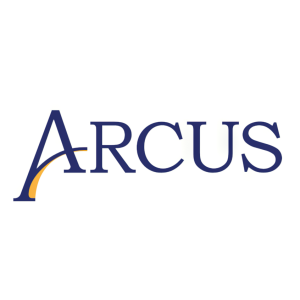New Data Demonstrated Best-in-Class Potential for Casdatifan, a HIF-2a Inhibitor, in Patients with Metastatic Kidney Cancer
- A 9.7-month median progression-free survival (mPFS) was reached for the 50mg twice-daily (BID) casdatifan monotherapy cohort of the Phase 1/1b ARC-20 study; mPFS was not yet reached for other cohorts
- Across all three monotherapy cohorts presented, casdatifan demonstrated improvements in the rate of primary progression, overall response rate (ORR) and progression-free survival (PFS) relative to published data from studies with HIF-2a inhibitors to date
- Arcus will host a conference call to discuss these data at 5:00 AM PT / 8:00 AM ET on Tuesday, February 18, 2025
“The newest data are from the 100mg cohort using the tablet formulation and the expected go-forward dose for pivotal studies, which showed a
ARC-20 is a Phase 1/1b dose-escalation and expansion study. New data include mPFS and ORR for the 50mg BID cohort, and ORR for the 50mg once-daily (QD) and 100mg QD (tablet) cohorts, all of which evaluated casdatifan in patients with metastatic clear cell renal cell carcinoma (ccRCC), most of whom had progressed on at least two prior lines of therapy, including both an anti-PD-1 and a VEGFR tyrosine kinase inhibitor (TKI) therapy. The patient population was heavily pretreated; more than half (52
Casdatifan showed improvement in primary progressive disease rate (progressed at or before their first disease assessment), ORR and mPFS relative to published data from studies with HIF-2a inhibitors to date. At the time of data cut off (DCO, January 3, 2025), most patients (81
No unexpected safety signals were observed at the time of DCO, and casdatifan had an acceptable and manageable safety profile across all doses. Across all three cohorts, only one patient discontinued treatment as a result of anemia and only two due to hypoxia. A summary of the efficacy and safety results is below.
|
50mg BID (n=32) |
50mg QD (n=28) |
100mg QD Tablet (Go-forward dose) (n=27) |
Efficacya |
|||
Median Follow-Up |
15 months |
12 months |
5 monthsb |
Median Progression-Free Survival ( |
9.7 months (5.5, NE) |
NE (6.8, NE) |
NE |
Confirmed ORR (cORR) per RECIST v1.1 [ |
[11.5-43.4] |
[15.9-52.4] |
[16.5-54.0] |
Best Overall Responsed: |
|
|
|
Complete Response |
0 |
|
0 |
Partial Response |
|
|
|
Stable Disease |
|
|
|
Progressive Disease |
|
|
|
Median Time to Response |
2.8 months |
4.1 months |
1.6 months |
Disease Control Rate
[ |
[63.6-92.8] |
[67.3-96.0] |
[66.3-95.8] |
CI: confidence interval; NE: not estimable
a Efficacy-evaluable population for this expansion cohort is defined as all eligible participants who received any study treatment and have at least one post-baseline efficacy assessment, or who discontinued study treatment due to progressive disease or death.
b Majority of patients (n=21) were still on treatment at time of DCO.
c In the 50mg BID cohort, one unconfirmed responder remains on treatment. In the 50mg QD cohort, one unconfirmed responder became a confirmed responder after the DCO, increasing the cORR to
d Unconfirmed best overall response.
e Includes two patients with radiological progressive disease and two patients who had clinical progression before the first scan.
|
50mg BID (n=33) |
50mg QD (n=31) |
100mg QD Tablet (Go-forward dose) (n=29) |
Safetya |
|||
Any Serious Treatment-Emergent Adverse Events (TEAEs) related to casdatifan |
|
|
|
Grade ≥3 TEAEs related to casdatifan |
|
|
|
|
|
|
|
Anemia |
|
|
|
Hypoxia |
|
|
|
a The safety-evaluable population included all dose expansion enrolled patients who received any amount of any study treatment.
Arcus is pursuing a broad development program in both the immuno-oncology (IO)-naive and post-IO settings with differentiated combinations to maximize the opportunity for casdatifan in ccRCC. These studies include:
- Arcus’s planned Phase 3 study, PEAK-1, which will evaluate casdatifan in combination with cabozantinib versus cabozantinib monotherapy as a first- or second-line treatment in patients with metastatic ccRCC who have previously received anti-PD-1 therapy. The primary endpoint will be PFS with a key secondary endpoint of overall survival.
- A planned Phase 1b study operationalized by AstraZeneca (part of the eVOLVE portfolio) to evaluate casdatifan in combination with volrustomig, an investigational anti-PD-1/CTLA-4 bispecific antibody.
- Initiation of two additional cohorts in ARC-20 to evaluate casdatifan in first-line settings.
Investors may dial in to the conference call at +1 404 975 4839 (local) or +1 833 470 1428 (toll-free) using Conference ID: 331780 on Tuesday, February 18, 2025, at 5:00 AM PT / 8:00 AM ET. Participants may also register for the call online using the following link: https://events.q4inc.com/attendee/364282703. To access the live webcast and accompanying slide presentation, please visit the “Investors & Media” section of the Arcus Biosciences website at www.arcusbio.com. A replay will be available following the live event.
About Casdatifan (AB521)
Casdatifan is a small-molecule inhibitor of HIF-2a, a transcription factor responsible for activating multiple tumor growth pathways in hypoxic and pseudo-hypoxic tumor environments. By selectively binding HIF-2a, casdatifan is designed to shut down hypoxic oncogenesis and key oncogenic pathways leading to cancer cell death. Clear cell RCC (ccRCC) is almost universally associated with HIF-2a dysregulation. Casdatifan is currently being evaluated in ARC-20, a Phase 1/1b study in renal cell carcinoma and other cancers.
Casdatifan is an investigational molecule. Approval from any regulatory authority for its use has not been received, and its safety and efficacy have not been established.
About RCC
According to the American Cancer Society, kidney cancer is among the top 10 most commonly diagnosed forms of cancer among both men and women in the
About Arcus Biosciences
Arcus Biosciences is a clinical-stage, global biopharmaceutical company developing differentiated molecules and combination medicines for people with cancer. In partnership with industry collaborators, patients and physicians around the world, Arcus is expediting the development of first- or best-in-class medicines against well-characterized biological targets and pathways and studying novel, biology-driven combinations that have the potential to help people with cancer live longer. Founded in 2015, the company has expedited the development of multiple investigational medicines into clinical studies, including new combination approaches that target TIGIT, PD-1, HIF-2a, CD73, dual A2a/A2b receptor, CD39 and AXL. For more information about Arcus Biosciences’s clinical and preclinical programs, please visit www.arcusbio.com.
Forward Looking Statements
This press release contains forward-looking statements. All statements regarding events or results to occur in the future contained herein are forward-looking statements reflecting the current beliefs and expectations of management made pursuant to the safe harbor provisions of the Private Securities Litigation Reform Act of 1995, including, but not limited to, the statements in Dr. Markus’s quotes and statements regarding: the potency, efficacy or safety of casdatifan, including its potential for a best-in-class profile and potential as a combination therapy; and Arcus’s development plans for the casdatifan program, including expected timing and design for new studies and cohorts and plans for generating data to support initiation of future studies. All forward-looking statements involve known and unknown risks and uncertainties and other important factors that may cause Arcus’s actual results, performance or achievements to differ significantly from those expressed or implied by the forward-looking statements. Factors that could cause or contribute to such differences include, but are not limited to risks associated with: interim data not being replicated in future studies evaluating the same investigational molecules or regimen; the unexpected emergence of adverse events or other undesirable side effects with casdatifan; risks associated with manufacturing or supplying product for such clinical trials; uncertainties in timelines associated with the conduct of clinical studies and with respect to the regulatory application process; difficulties associated with the management of the collaboration activities with our strategic partners or expanded clinical programs; changes in the competitive landscape for Arcus’s programs; and the inherent uncertainty associated with pharmaceutical product development and clinical trials. Risks and uncertainties facing Arcus are described more fully in the “Risk Factors” section of Arcus’s most recent periodic report filed with the
The Arcus name and logo are trademarks of Arcus Biosciences, Inc. All other trademarks belong to their respective owners.
View source version on businesswire.com: https://www.businesswire.com/news/home/20250215794589/en/
Investor Inquiries:
Pia Eaves
VP of Investor Relations & Strategy
(617) 459-2006
peaves@arcusbio.com
Media Inquiries:
Holli Kolkey
VP of Corporate Affairs
(650) 922-1269
hkolkey@arcusbio.com
Maryam Bassiri
AD, Corporate Communications
(510) 406-8520
mbassiri@arcusbio.com
Source: Arcus Biosciences







